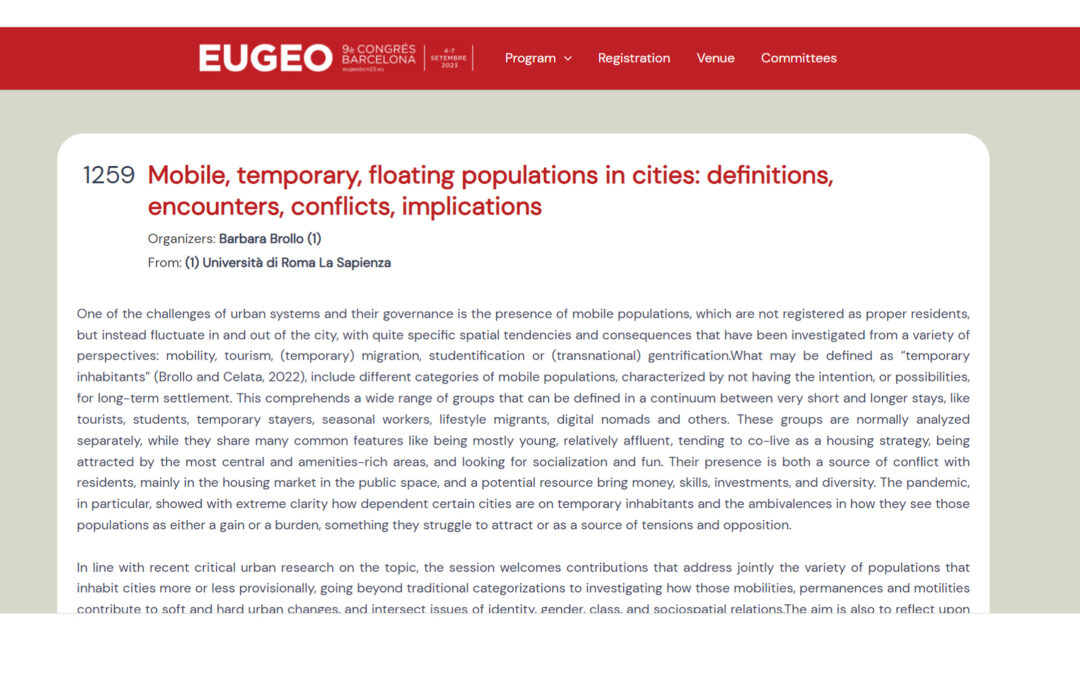Call for Abstract – Mobile, temporary, floating populations in cities: definitions, encounters, conflicts, implications.
Barbara Brollo, Università di Roma La Sapienza
https://www.eugeobcn23.eu/sessions/?id=1259
One of the challenges of urban systems and their governance is the presence of mobile populations, which are not registered as proper residents, but instead fluctuate in and out of the city, with quite specific spatial tendencies and consequences that have been investigated from a variety of perspectives: mobility, tourism, (temporary) migration, studentification or (transnational) gentrification.What may be defined as “temporary inhabitants” (Brollo and Celata, 2022), include different categories of mobile populations, characterized by not having the intention, or possibilities, for long-term settlement. This comprehends a wide range of groups that can be defined in a continuum between very short and longer stays, like tourists, students, temporary stayers, seasonal workers, lifestyle migrants, digital nomads and others. These groups are normally analyzed separately, while they share many common features like being mostly young, relatively affluent, tending to co-live as a housing strategy, being attracted by the most central and amenities-rich areas, and looking for socialization and fun. Their presence is both a source of conflict with residents, mainly in the housing market in the public space, and a potential resource bring money, skills, investments, and diversity. The pandemic, in particular, showed with extreme clarity how dependent certain cities are on temporary inhabitants and the ambivalences in how they see those populations as either a gain or a burden, something they struggle to attract or as a source of tensions and opposition.
In line with recent critical urban research on the topic, the session welcomes contributions that address jointly the variety of populations that inhabit cities more or less provisionally, going beyond traditional categorizations to investigating how those mobilities, permanences and motilities contribute to soft and hard urban changes, and intersect issues of identity, gender, class, and sociospatial relations.The aim is also to reflect upon an urban condition that is increasingly temporary and mobile, on its implications in terms of political, social, economic, and spatial polarization, and about the human and personal experiences of temporary inhabitants from the perspective of life-course analysis, lifestyle and choices. Presentations about governance and policies of this phenomenon are also welcome. The session welcomes theoretical, methodological or empirical contributions from different geographical areas, cities and scales. We invite participants to propose short presentations which include issues and questions for a final discussion. The main language of the session is English.

